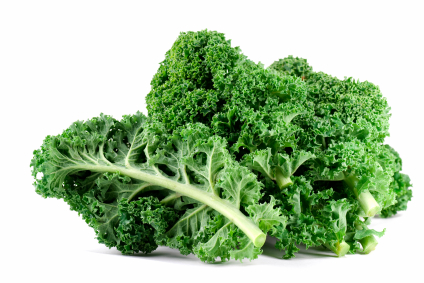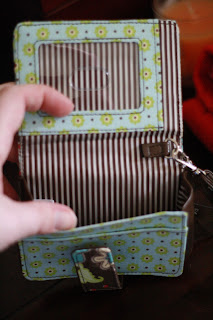I'm the crazy gal who wears signs on my back during the cancer walks that have statistics explaining how improving Vit D levels can improve their prognosis.
I wear t-shirts I made that read "Got D?" so that people will ask me about it and I can start conversations with them about this wonderful hormone.
| See everyone else in their Race shirt? Not me :) |
 |
| My D shirt collection *Hot Pink* shirt not shown :) |
I'm Crazy.
You know why? Because I'm sick of bad things happening to good people. I'm sick for my friend who just had a double mastectomy (under age 50, although a mastectomy at any age is devastating). And my other friend, a mother of 3 young children, who was just diagnosed with pancreatic cancer.
I think national efforts in recent years have significantly increased Americans' general awareness about Vitamin D. Do most people know it's not actually a vitamin but rather a hormone? I doubt it.
Do they know they should probably be taking more of it? Yes.
People ask me ALL THE TIME: how much D should I be taking?
I wish there was an easy answer to that question. I wish I didn't have to delve into their personal and health history, asking questions like:
After approx age 40, your body just can't convert sunlight into vitamin D like it used to do. Vit D is fat soluble so if you're overweight, you need higher intakes of D. If you live in the Northern States like Washington (where Seattle has the highest incidence of Multiple Sclerosis in the country), then even if you spend unprotected time in the sun, the UV levels likely aren't strong enough to enable you to make D. And if you're dark skinned, forget about it. Darker skin makes almost no Vitamin D.
As you can see, the list of variables that affect your body's ability to make Vitamin D is complex.
There really is no such thing as an ideal dose of D.
The best answer is: "whatever it takes to raise your blood level to 80 ng/mL."
For some that might be 2,000 IU/day. For others, that might be 15,000 IU/day. It's highly variable based on your individual circumstance. Even physiological factors that you may be unaware of could affect your ability to make D. Maybe you have one of the 200 polymorphisms that prevent your body from activating or binding the D properly.
Until you have your blood levels checked, its difficult to know if the amount you're taking is sufficient and if you're providing your body with what it needs to prevent cancer and fight off infections.
While I'm glad that when people see me now, they proudly declare "I take my D!" I think the dialogue needs to advance to them knowing what their D level is. I'd much rather hear someone say, "I have a great D level!" than simply knowing they take D.
There's nothing more frustrating than having someone who takes an inky-dinky amount of D (oh, say like 800 IU/daily) declare, "well I take Vitamin D and I still got the flu." Unless they knew their blood levels were higher than 80 ng/mL, they're not really proving Vit D doesn't prevent the flu; they're more or less expressing their ignorance on the subject.
Personally, I take 10,000 IU/daily and have since March 2007. My last blood level was 79 ng/mL. Ryan takes 2,000 IU daily and his last blood level was 69 ng/mL (I use the ZRT finger prick kit rather than having the lab draw his blood). RJ has been getting Vitamin D since he was a little baby tadpole (I took the 10,000 IU daily while pregnant. I probably could have taken more since I was heavier during pregnancy).
Now that I've established that I need 10,000 IU daily to keep up my level, I only get my D checked once a year. Same with Ryan. No need for excessive blood draws now that we know what it takes to get the ideal blood level.
How can you watch an amazing video like this, from ABC News, and not beinspired convicted to take action to ensure your family, your loved ones, your friends, your coworkers....are getting enough D:
You know why? Because I'm sick of bad things happening to good people. I'm sick for my friend who just had a double mastectomy (under age 50, although a mastectomy at any age is devastating). And my other friend, a mother of 3 young children, who was just diagnosed with pancreatic cancer.
I think national efforts in recent years have significantly increased Americans' general awareness about Vitamin D. Do most people know it's not actually a vitamin but rather a hormone? I doubt it.
Do they know they should probably be taking more of it? Yes.
People ask me ALL THE TIME: how much D should I be taking?
I wish there was an easy answer to that question. I wish I didn't have to delve into their personal and health history, asking questions like:
- How old are you?
- Are you pregnant?
- Do you have any autoimmune disorders?
- Are you diabetic?
- Exactly how overweight are you?
- Where do you live?
- Do you put on sunscreen when you go outside in the summertime between 10am-2pm?
- Do you have a history of cancer?
After approx age 40, your body just can't convert sunlight into vitamin D like it used to do. Vit D is fat soluble so if you're overweight, you need higher intakes of D. If you live in the Northern States like Washington (where Seattle has the highest incidence of Multiple Sclerosis in the country), then even if you spend unprotected time in the sun, the UV levels likely aren't strong enough to enable you to make D. And if you're dark skinned, forget about it. Darker skin makes almost no Vitamin D.
As you can see, the list of variables that affect your body's ability to make Vitamin D is complex.
There really is no such thing as an ideal dose of D.
The best answer is: "whatever it takes to raise your blood level to 80 ng/mL."
For some that might be 2,000 IU/day. For others, that might be 15,000 IU/day. It's highly variable based on your individual circumstance. Even physiological factors that you may be unaware of could affect your ability to make D. Maybe you have one of the 200 polymorphisms that prevent your body from activating or binding the D properly.
Until you have your blood levels checked, its difficult to know if the amount you're taking is sufficient and if you're providing your body with what it needs to prevent cancer and fight off infections.
While I'm glad that when people see me now, they proudly declare "I take my D!" I think the dialogue needs to advance to them knowing what their D level is. I'd much rather hear someone say, "I have a great D level!" than simply knowing they take D.
There's nothing more frustrating than having someone who takes an inky-dinky amount of D (oh, say like 800 IU/daily) declare, "well I take Vitamin D and I still got the flu." Unless they knew their blood levels were higher than 80 ng/mL, they're not really proving Vit D doesn't prevent the flu; they're more or less expressing their ignorance on the subject.
Personally, I take 10,000 IU/daily and have since March 2007. My last blood level was 79 ng/mL. Ryan takes 2,000 IU daily and his last blood level was 69 ng/mL (I use the ZRT finger prick kit rather than having the lab draw his blood). RJ has been getting Vitamin D since he was a little baby tadpole (I took the 10,000 IU daily while pregnant. I probably could have taken more since I was heavier during pregnancy).
Now that I've established that I need 10,000 IU daily to keep up my level, I only get my D checked once a year. Same with Ryan. No need for excessive blood draws now that we know what it takes to get the ideal blood level.
How can you watch an amazing video like this, from ABC News, and not be
"Vitamin D is pretty unique in its actions in that it does enter the cancer cells and induce them to undergo the cell death process."
Now do you see why I advocate so fiercely about Vitamin D?
So, next time we see each other, I hope that you'll impress me with your D level rather than the fact that you're taking it :)


 Kale is being called “the new beef”, “the queen of greens” and “a nutritional powerhouse.” Here are ten great benefits of adding more
Kale is being called “the new beef”, “the queen of greens” and “a nutritional powerhouse.” Here are ten great benefits of adding more 












































